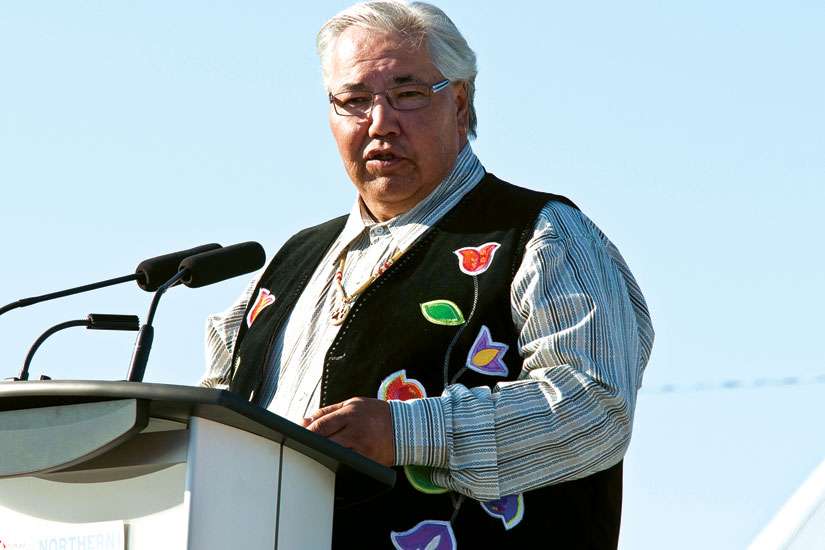“Starting now, we all have an opportunity to show leadership, courage and conviction in helping heal the wounds of the past as we make a path towards a more just, more fair and more loving country,” Sinclair said.
Sinclair was speaking at a media conference following release of a summary of the TRC’s report into Canada’s residential schools. It outlined 94 recommendations to redress past wrongs committed against Canada’s aboriginal peoples.
“The children who attended these schools were severely punished for practising their cultural ceremonies, for speaking their family’s language,” said Dr. Marie Wilson, a TRC commissioner. “Reconciliation rests on building aboriginal culture back up, and preserving the languages and ceremonies that the schools tried to eliminate.”
Included in the recommendations are demands that governments implement the United Nations Declaration on the Rights of Indigenous Peoples.
“There are already solutions in place that can help us move forward on reconciliation,” Sinclair said. “The UN declaration is an example of this. We need to begin incorporating and utilizing these solutions.”
Achieving reconciliation will require Canadians to be open-minded, said Commissioner Chief Wilton Littlechild.
“There are many who will pull down the blinders and pretend that this isn’t their issue,” Littlechild said. “We are calling on you to open up your mind, to be willing to learn these stories, to be willing to accept that these things happened.
“This is not an aboriginal issue, it’s a Canadian issue.”
Grand Chief Harvey Yesno of the Nishnawbe Aski First Nation located in Northern Ontario said he attended two residential schools, as did 11 of his 14 siblings.
“I personally have come to terms with physical and sexual abuse I have experienced,” he said.
The experience of being separated from his family caused a lot of suffering, he said. But the events that led to the Truth and Reconciliation Commission, including Prime Minister’s Stephen Harper’s apology in 2008, have produced a great deal of healing.
As a Christian who has also “walked the traditional way,” Yesno said he found the churches’ past treatment of native people unbelievable.
“We were considered less than other people,” he said. “I have reconciled because I have a personal relationship with the Lord.”
Elder Irvin Sarazin, from the Algonquin First Nation at Golden Lake, Ont. said he experienced the impact of residential schools as the child of a father who attended one.
His father didn’t know how to express love, and carried the trauma with him, he said. His mother took her children to church to prevent them from being taken to residential school. He said he never learned his own culture, language or ceremonies.
He said he was so assimilated that this didn’t bother him. “We learned our Christian way but our culture was outlawed.”
Today Sarazin said he follows both cultures. He believes “the Church is a salvation” but “the hurt in the past” has made many native people pull back.
“I would like to see all these people walking the good path. You can walk your culture but you can also go to church.”
(With files from Robert Du Broy.)
Read other articles about the 2015 Truth and Reconciliation Commission Report
- The healing must begin now, Sinclair says, by Deborah Gyapong, Canadian Catholic News
- Reconciliation must begin in the classrooms, by Michael Swan, The Catholic Register
- TRC says Pope Francis should apologize for abuses at residential schools, by Deborah Gyapong, Canadian Catholic News
- Long way to go to First Nations' reconciliation by Michael Swan, The Catholic Register


